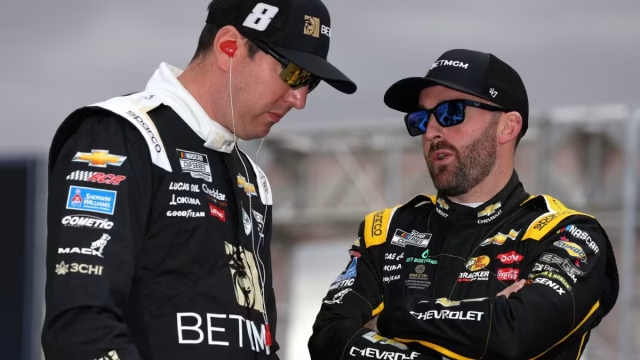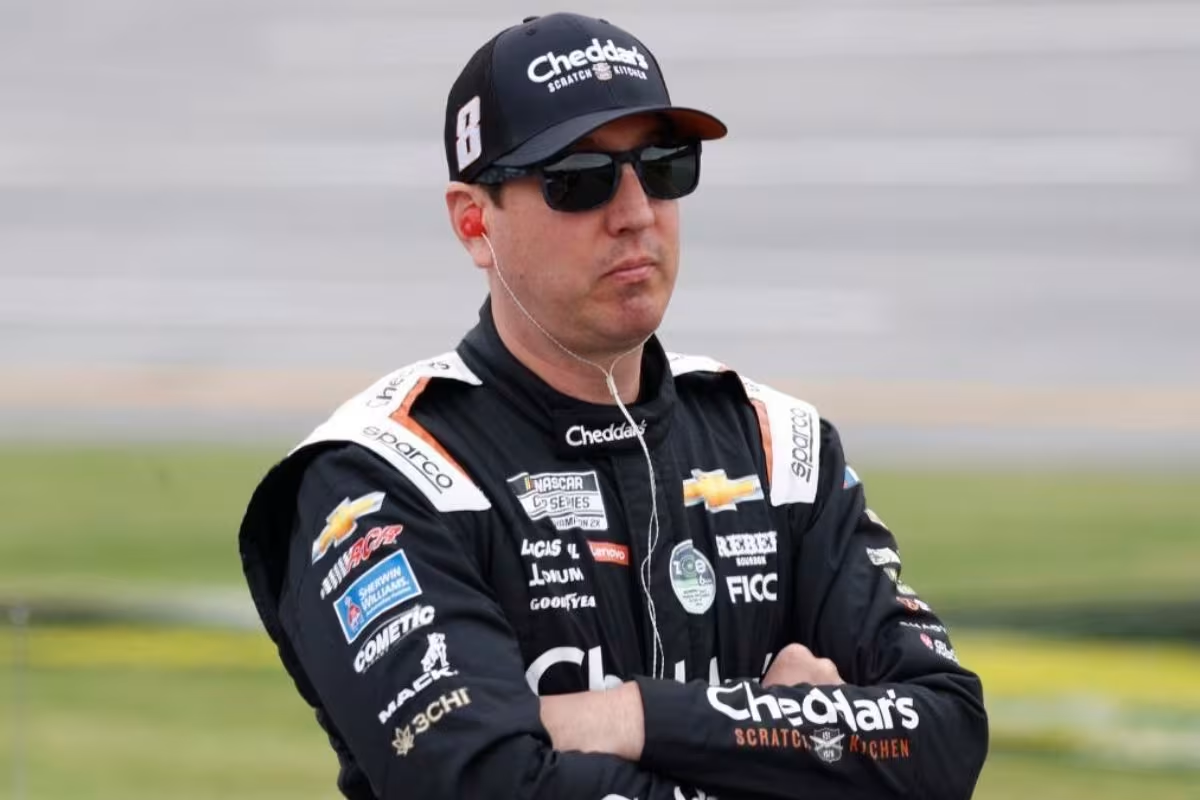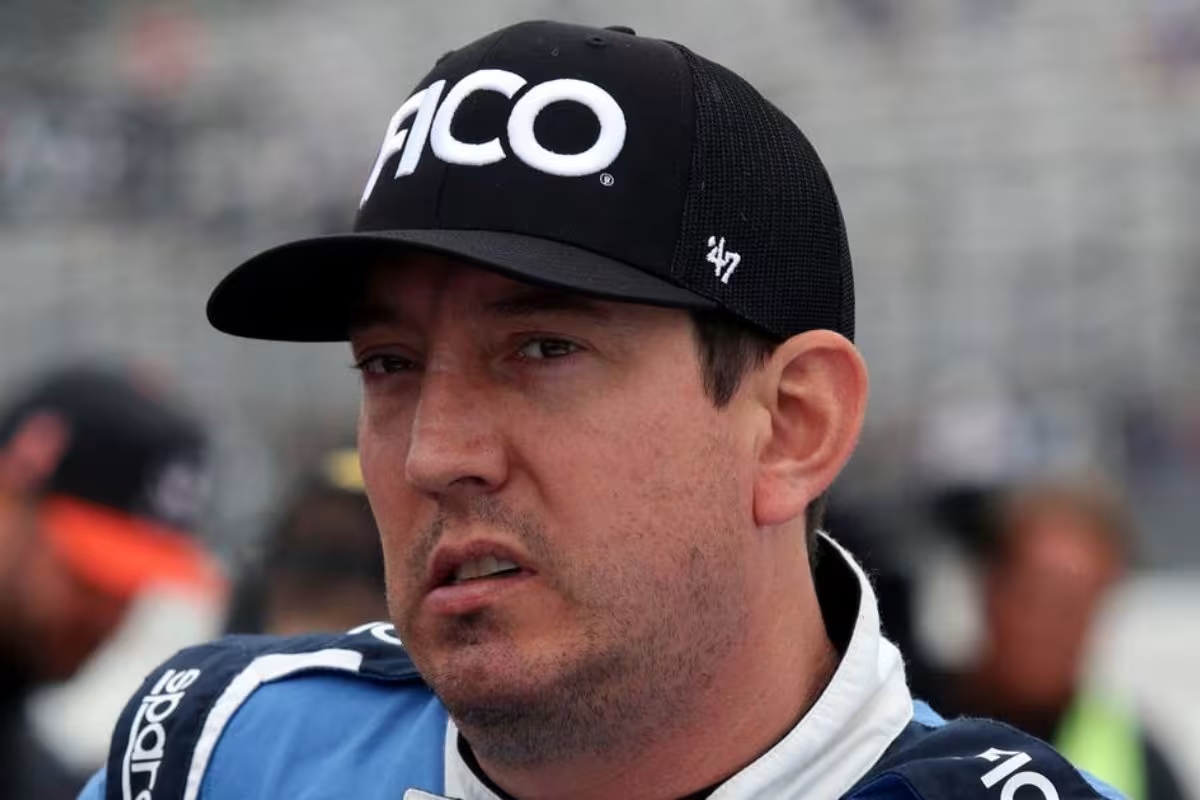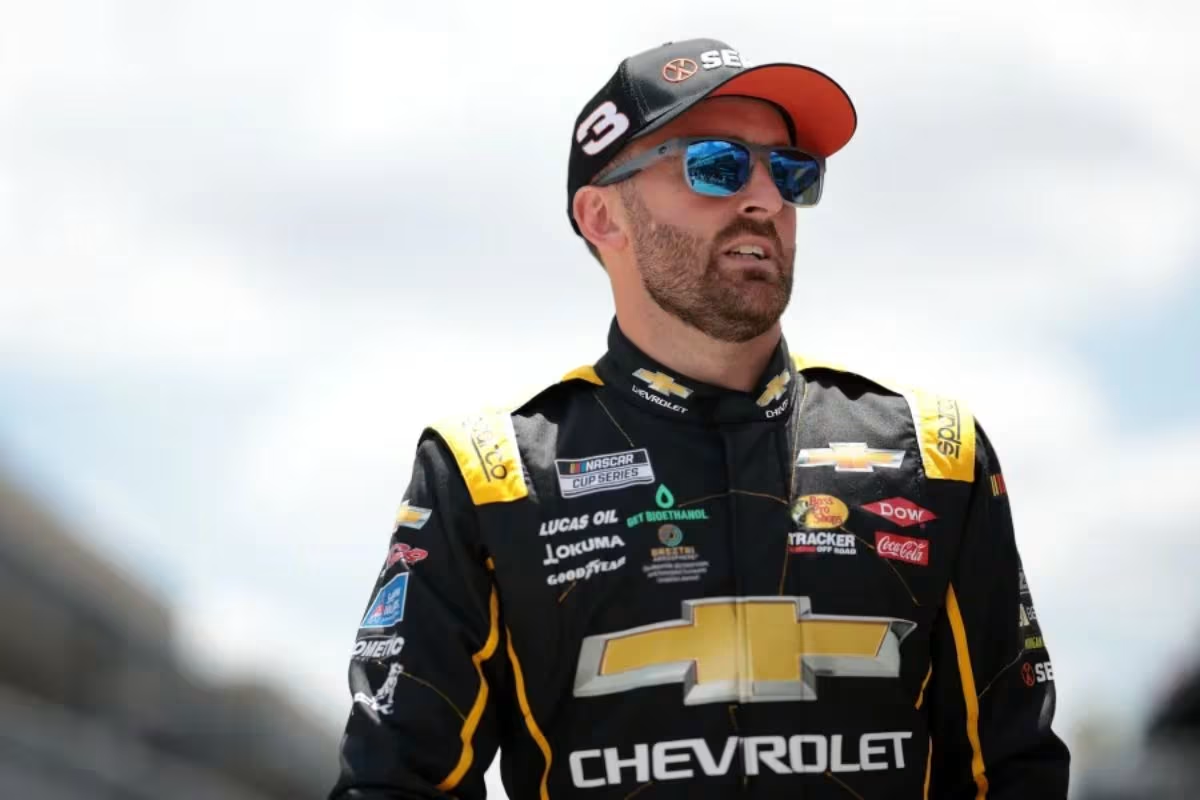Kyle Busch and Austin Dillon linked to cheating scandal are at the center of a shocking cheating scandal that’s got NASCAR fans talking. Rumors are swirling about possible rule-breaking, with reports of information sharing between teams, possibly involving a JGR engineer. After impressive performances, like Austin Dillon’s recent win and Kyle Busch’s strong finishes, fans are asking—could this be more than just good luck?
Key Highlights
- Recent allegations suggest Kyle Busch and Austin Dillon may have benefited from rule violations involving information sharing between teams, notably with JGR.
- Performance improvements for both drivers post-allegations have raised suspicion among fans and analysts regarding potential unethical collaboration.
- Austin Dillon’s victory at Richmond and Kyle Busch’s significant rise in average finish have fueled speculation about covert insight-sharing among teams.
- NASCAR’s ability to act on these allegations is limited by the absence of formal complaints and concrete evidence.
- Historical context shows NASCAR’s past controversies, highlighting ongoing ethical concerns about competition integrity and team dynamics.
Overview of the Scandal
Frequent allegations of rule violations have long plagued the world of NASCAR, but the recent scandal involving Kyle Busch and Austin Dillon takes these concerns to a new level. The emergence of a report by AP journalist Jenna Fryer has laid bare accusations of information sharing between teams, specifically implicating a Joe Gibbs Racing (JGR) engineer who allegedly divulged crucial race setup details to a rival team.
This incident highlights the precarious nature of competition in NASCAR, where the fine lines of legality and ethical conduct can easily blur. In a sport where the mantra “If you ain’t cheating, you ain’t trying” often reverberates through the paddock, this scandal raises important questions about the integrity and competitive spirit of NASCAR.
Sharing specialized data is not merely a tactical advantage; it can represent a fundamental breach of trust among teams that are supposed to compete on a level playing field. The ramifications of such actions are profound, especially in the era of spec cars, where every minor adjustment can yield notable performance gains.
NASCAR’s hands are tied, as without formal complaints or evidence presented, the governing body is limited in its ability to take action. The fact that the implicated team does not currently compete in the playoffs further complicates the situation, leaving fans and insiders similarly to ponder the broader implications of this scandal.
Speculation Surrounding RCR and Kyle Busch
The implications of the recent scandal extend beyond the immediate accusations, prompting speculation about the potential beneficiaries of any shared information. In the wake of the turmoil surrounding Joe Gibbs Racing (JGR), Richard Childress Racing (RCR) and Kyle Busch have emerged as focal points of conjecture.
The notable resurgence of RCR, particularly following a dismal start to the 2024 season, raises questions about the correlation between this newfound performance and the scandal enveloping their rival team. Historically, RCR struggled to establish competitive footing, with both Kyle Busch and Austin Dillon facing considerable challenges on track.
However, the dramatic turnaround post-Olympic break, highlighted by Austin Dillon’s victory at Richmond Raceway, invites scrutiny. NASCAR insiders suggest that the resurgence of RCR could indicate a potential exchange of advantageous information or setups that might have inadvertently leaked from JGR’s operations.
This speculation is intensified by the timing of Kyle Busch’s competitive revival, which coincides with the allegations against JGR. Although definitive evidence remains elusive, the narrative of a possible covert collaboration or insight-sharing cannot be dismissed.
As both teams seemingly harness newfound speed, the implications of these developments could reverberate throughout the NASCAR community, igniting further debate about the integrity of competitive practices within the sport.
Suspicious Improvement and Driver Reactions
The statistics paint a striking picture that fuels this skepticism. Prior to the Richmond race, Kyle Busch averaged a finish of 17.7 over six races, a pronounced contrast to his impressive 5.4 average post-Richmond.
“Definitely question where they got all that speed from as well, right? I mean, they haven’t been running good at all; now suddenly they’re super fast.” – Ty Gibbs
Likewise, Austin Dillon’s performance had been lackluster, with zero laps led until he commanded 35 laps during the Richmond event. These drastic changes in performance metrics have led analysts, including Eric Estepp, to label the situation as “sus,” emphasizing the lack of hard evidence yet highlighting the unsettling nature of the rapid turnaround.
“Go back to August. Kyle Busch has an average finish of 17.7 for 6 races immediately following the Olympic break, including that Richmond race. Kyle Busch has an average finish of 5.4. And his teammate Austin Dillon had led zero laps all year until that Richmond race, he led 35. It’s sus, that’s all I can say. I’m not trying to throw around allegations here. I have no hard evidence, we could be way wrong on this.” -Eric Estepp
Historical Context and Uncertain Future
Amidst the current controversy surrounding Kyle Busch and Austin Dillon‘s unexpected performance surge, the historical context of alliances and rivalries in NASCAR becomes increasingly pertinent. The potential breach of trust within Joe Gibbs Racing (JGR) evokes memories of past clandestine partnerships, particularly the secret alliance between Ray Evernham and Andy Petree during the fierce rivalry between Jeff Gordon and Dale Earnhardt.
“I wish that Andy Petree and whoever Ray was working with then had told Dale Earnhardt Sr. that we were doing these kinds of things. Because I promise on the racetrack, he didn’t treat me like we were harmonious.” -Jeff Gordon
This historical precedent highlights the complexity of team dynamics in NASCAR, where collaboration can often blur ethical lines. In an era where precision is paramount, and every millisecond counts, the ramifications of such scandals are magnified. Unlike the days when crew chiefs wielded considerable control over their cars, today’s environment is characterized by stringent regulations.
The current situation at JGR echoes past controversies but also emphasizes a shift in how teams operate. The prospect of either an overt disciplinary action or a discreet resolution looms large, reflecting the precarious balance between competitive advantage and ethical conduct.
As fans await clarity, the uncertain future of this scandal raises questions about the integrity of the sport. The absence of confirmed details from involved parties only fuels speculation, making this a crucial moment in NASCAR history.
News in Brief: Kyle Busch and Austin Dillon Linked to Cheating Scandal
The recent allegations of a cheating scandal involving Kyle Busch and Austin Dillon have ignited fervent discussions among NASCAR fans and analysts similarly. The speculation surrounding Richard Childress Racing, coupled with unexpected performance improvements, raises questions about the integrity of competitive practices within the sport.
Historical patterns of scrutiny suggest that such controversies are not new to NASCAR, emphasizing the need for ongoing vigilance and transparency to preserve the sport’s credibility and guarantee fair competition.
ALSO READ: Kyle Busch and Martin Truex Jr. Raise Red Flags on ROVAL Changes—Time for NASCAR to Act?



